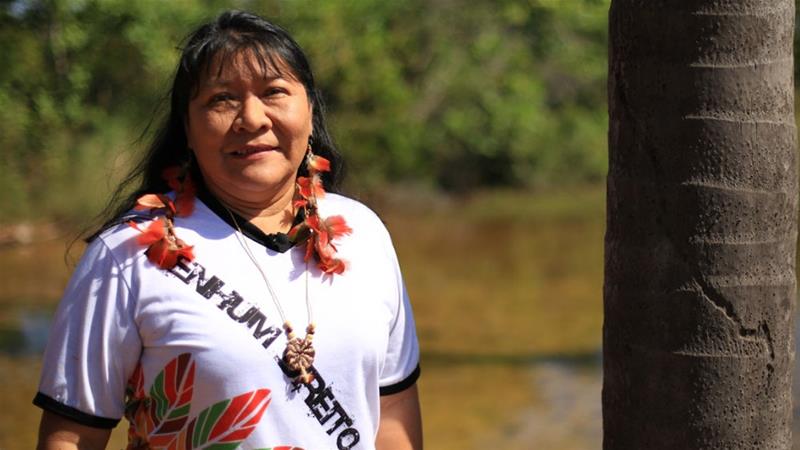The Indigenous population in Brazil has always been shut out from positions of power, but Joênia Wapichana is ready to change that.
On October 7th, she became the first Indigenous woman elected to Brazil’s Chamber of Deputies – the very first Indigenous woman to hold a seat in Congress in 194 years.
Next year, Wapichana will assume office in Brasília, ending a 32-year stretch in which there were no Indigenous representatives in the House whatsoever. (The most recent – and only – other Indigenous person to have held office was deputy Mario Juruna, from 1983 to 1986.)
Among the 132 Indigenous candidates who ran for Governor, Senator, Federal Deputy and even Vice President, Wapichana was the only one victorious in these elections. Now, the approximately 900,000 members of Brazil’s Native communities are counting on Wapichana and her commitment to the cause. “I feel happy, but also full of responsibility. We are just beginning,” she said.
Wapichana is the first Brazilian Indigenous woman to graduate from law school.
Representing the Rede Sustentabilidade Party, the newly elected congresswoman belongs to the Wapixana people, who live in the State of Roraima (Northern Brazil). Home to the biggest indigenous population in the country, Roraima is also where the largest indigenous reserves are located.
Although Wapichana recognizes the significance of her victory, being a pioneer isn’t really new to her. The 44 year-old politician was not only the first Native Brazilian woman to graduate from law school, at Roraima’s Federal University, but also the first to obtain a master’s degree, from University of Arizona in the United States.
In 2008, Wapichana was the first Indigenous lawyer to go to Brazil’s Supreme Court, when she pleaded for the land demarcation of the “Raposa Serra do Sol” indigenous reserve, an area of over 1 million hectares, located in her home State of Roraima. Less than a year later, Wapichana won the case.
When the lawyer decided to run for Congress, she knew it wouldn’t be easy – especially in a State dominated by white, rich, agribusiness men who have been ruling for so long. However, Wapichana was elected with over 8,000 votes, proving that Roraima’s citizens really want something to change.
Wapichana felt becoming a candidate was her duty towards Indigenous peoples: “We need representativeness in politics; the Indigenous rights are in grave danger in Brazil. Also, we need more women in politics,” the congresswoman shared.
In Congress, the newly elected politician declares she will stand up for Indigenous rights and environmental sustainability, but she also wants to target public budgeting issues. “The Indigenous communities have to be included in the government’s general planning. We need to ensure that growth in productivity does not harm Indigenous rights and culture,” she stated.
As Brazil faces a far-right wave like never seen before, Wapichana must be ready to face even bigger challenges: this will be the most conservative Congress in the last 30 years. Now, the ultraconservative Social-Liberal Party, to which presidential candidate Jair Bolsonaro – known as “The Trump of the Tropics” – is affiliated, is the second biggest group in the Chamber, with 52 deputies.
Beyond that, Wapichana debuts in politics at a time when several unpopular neoliberal reforms are happening in Brazil. Some of them are a serious step back for Indigenous rights. Since 2016, the Federal Government drastically shrank FUNAI, the most important institution for Indigenous rights in Brazil (over 300 job vacancies were closed). In 2015, the Chamber of Deputies approved a Proposed Amendment to the Constitution (PEC 2015) that transfers the final decision on land demarcation from the executive to the legislative branch.
It will be hard, but Wapichana is determined to fight. After all, she’s waited 194 years for this moment. As she told Al Jazeera, “It has always been like that for us. Everything we have, we had to fight for and conquer and that’s what we’re going to do now.”







